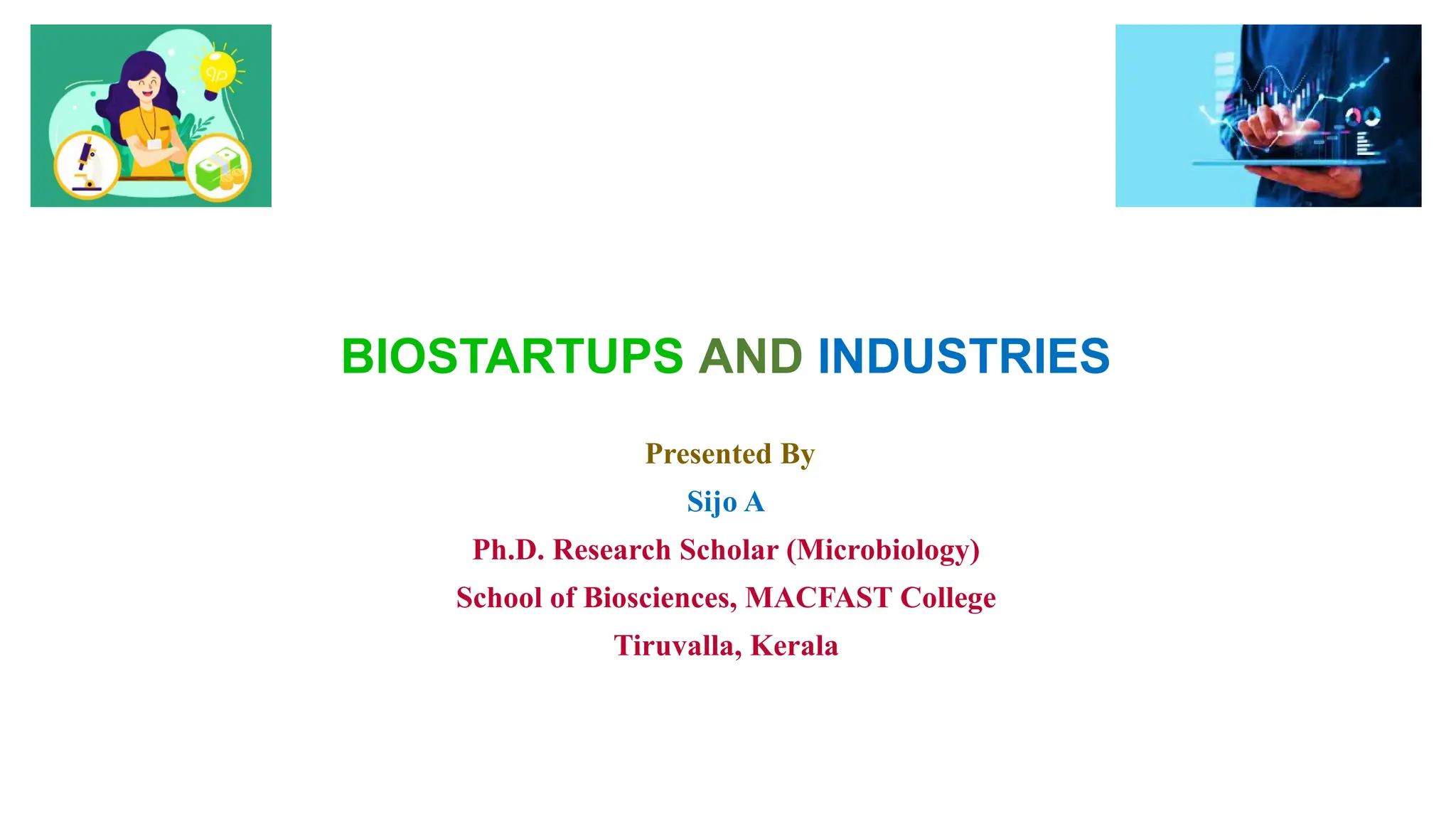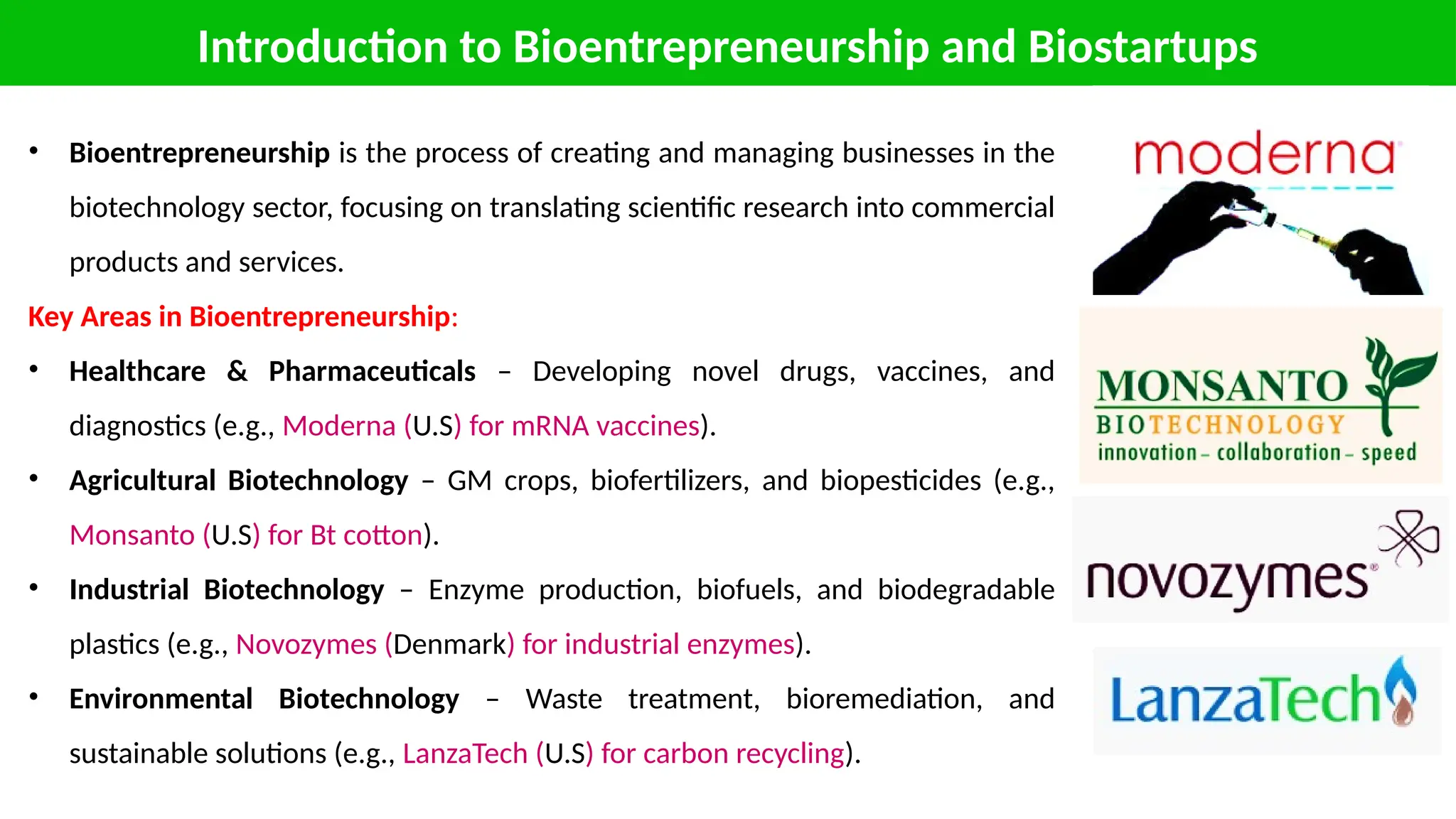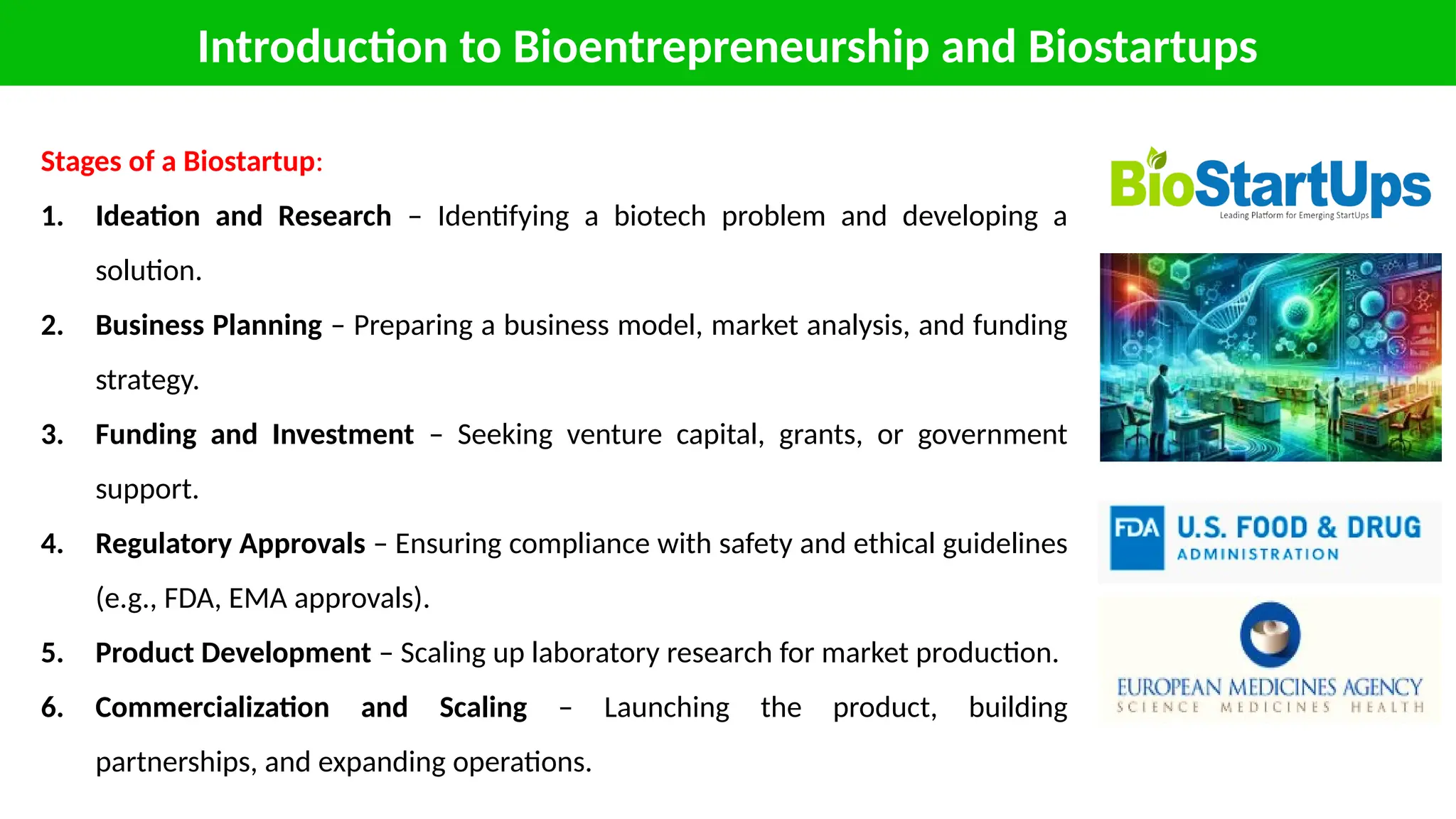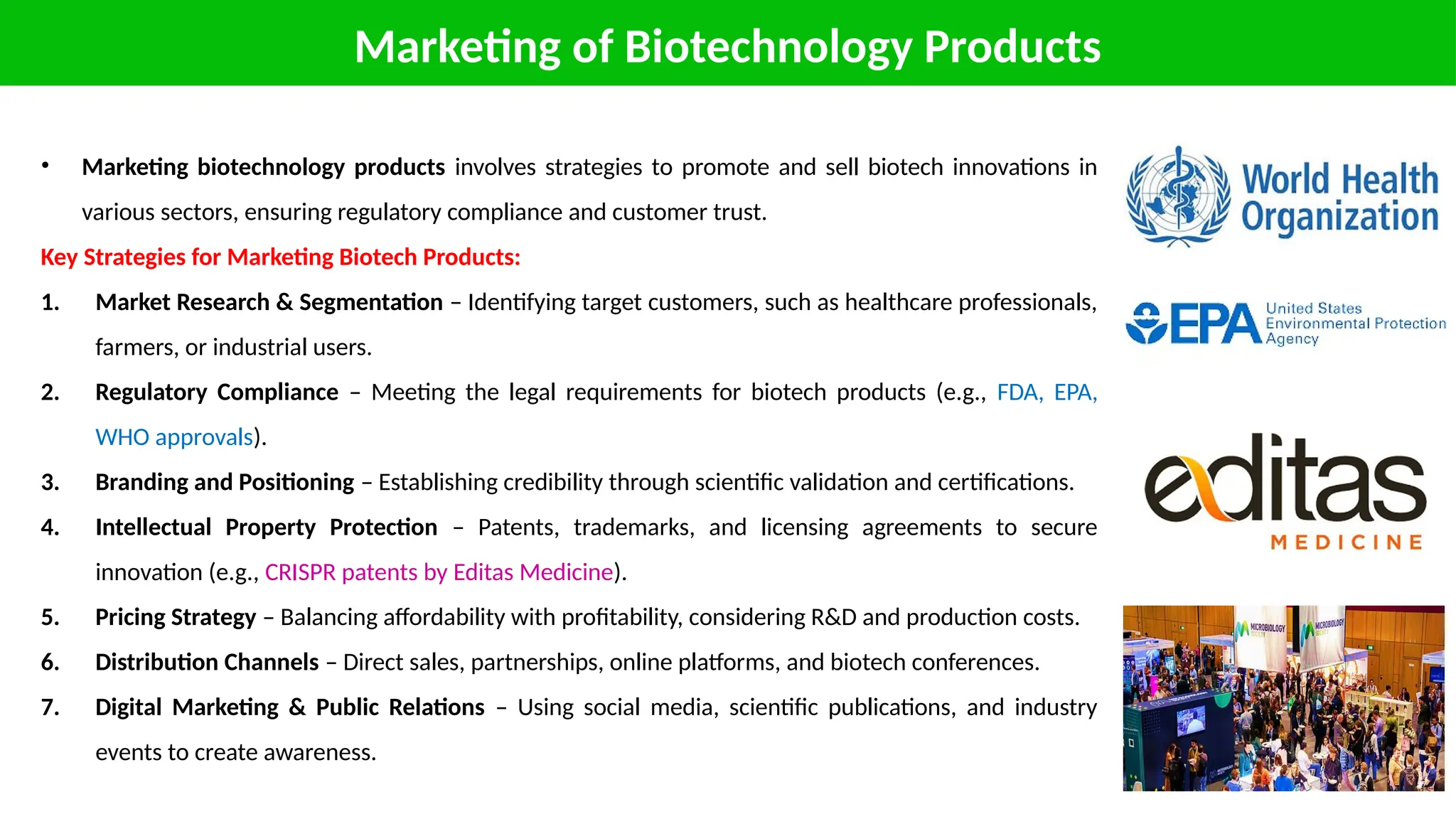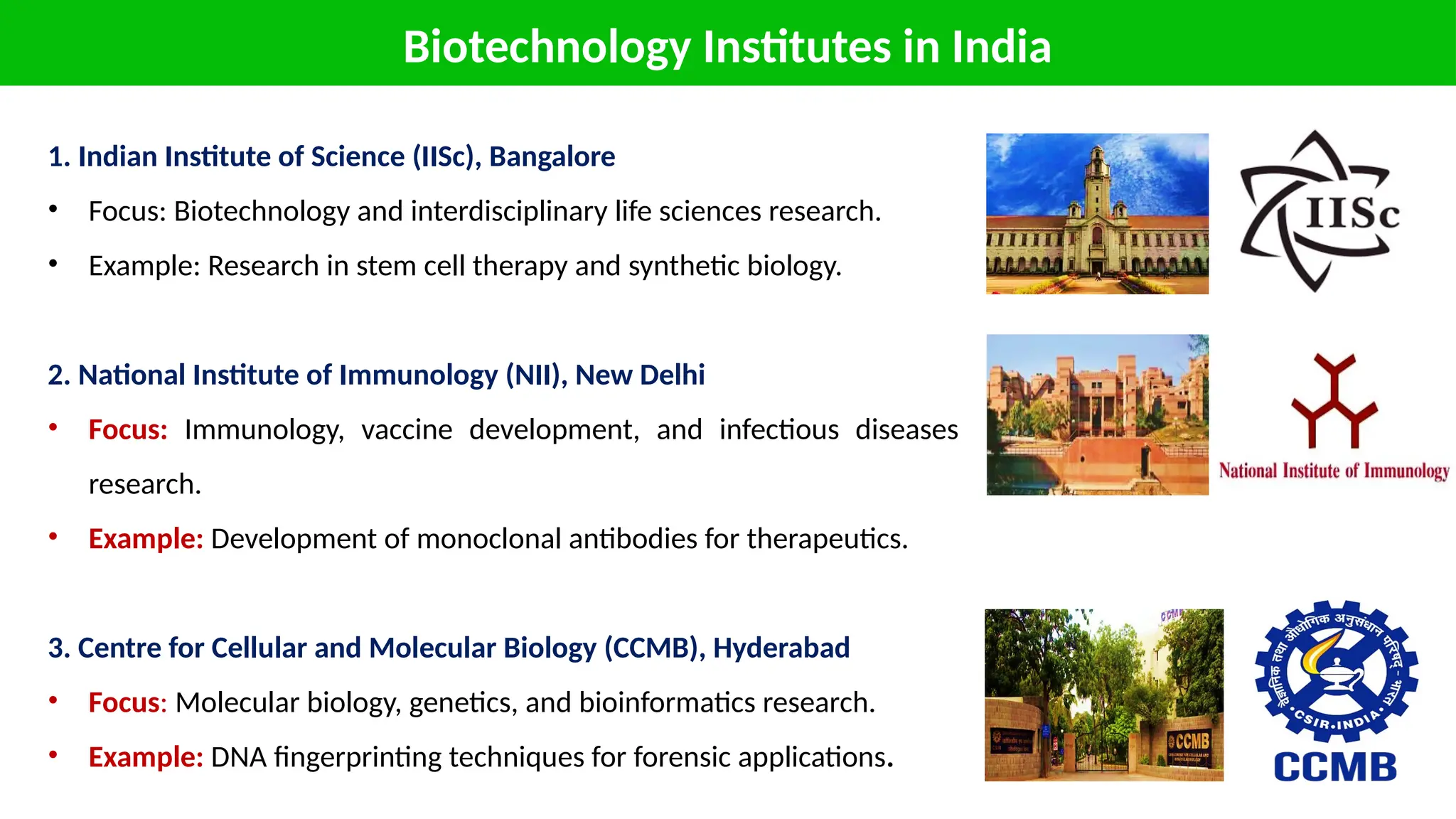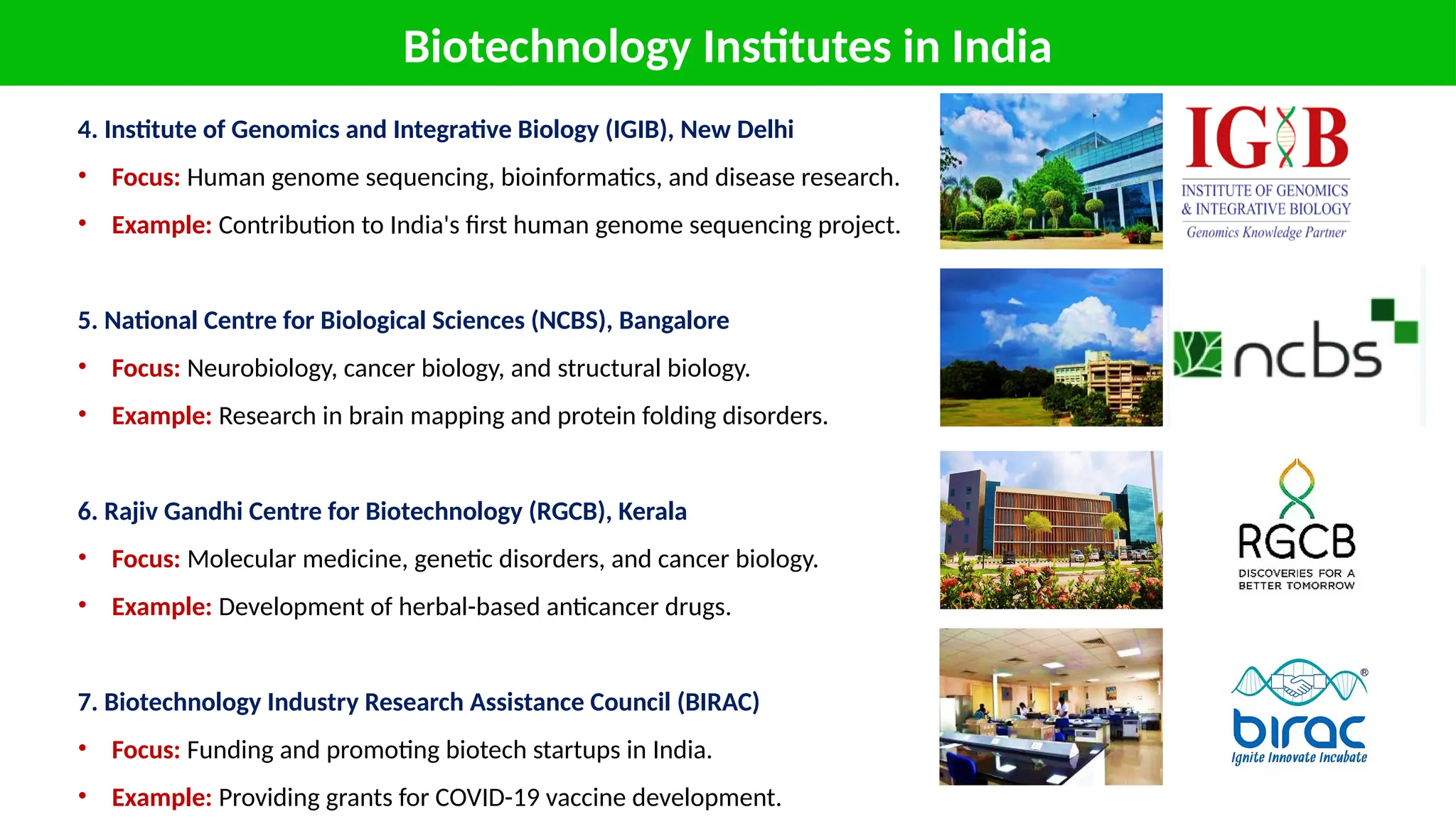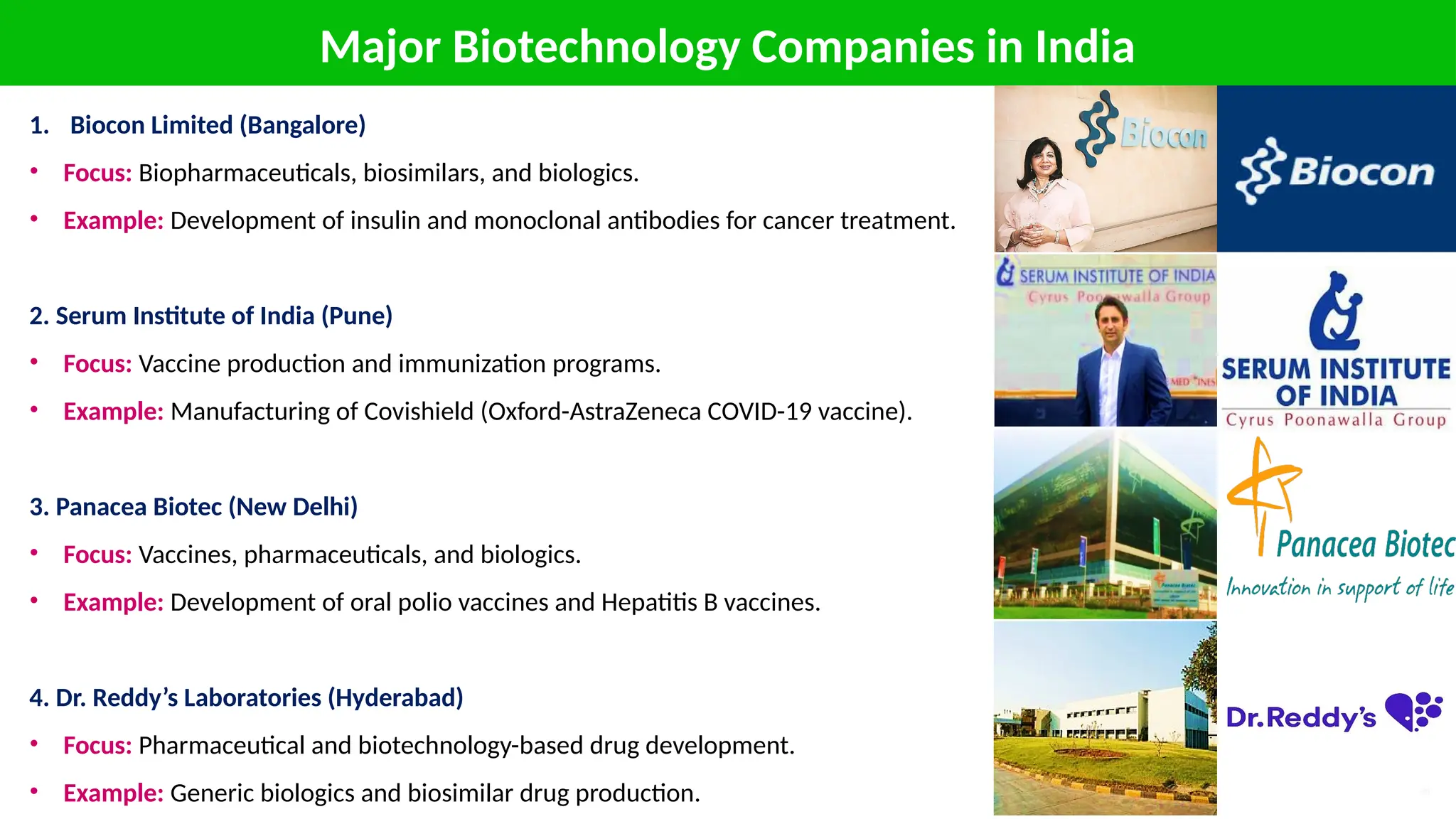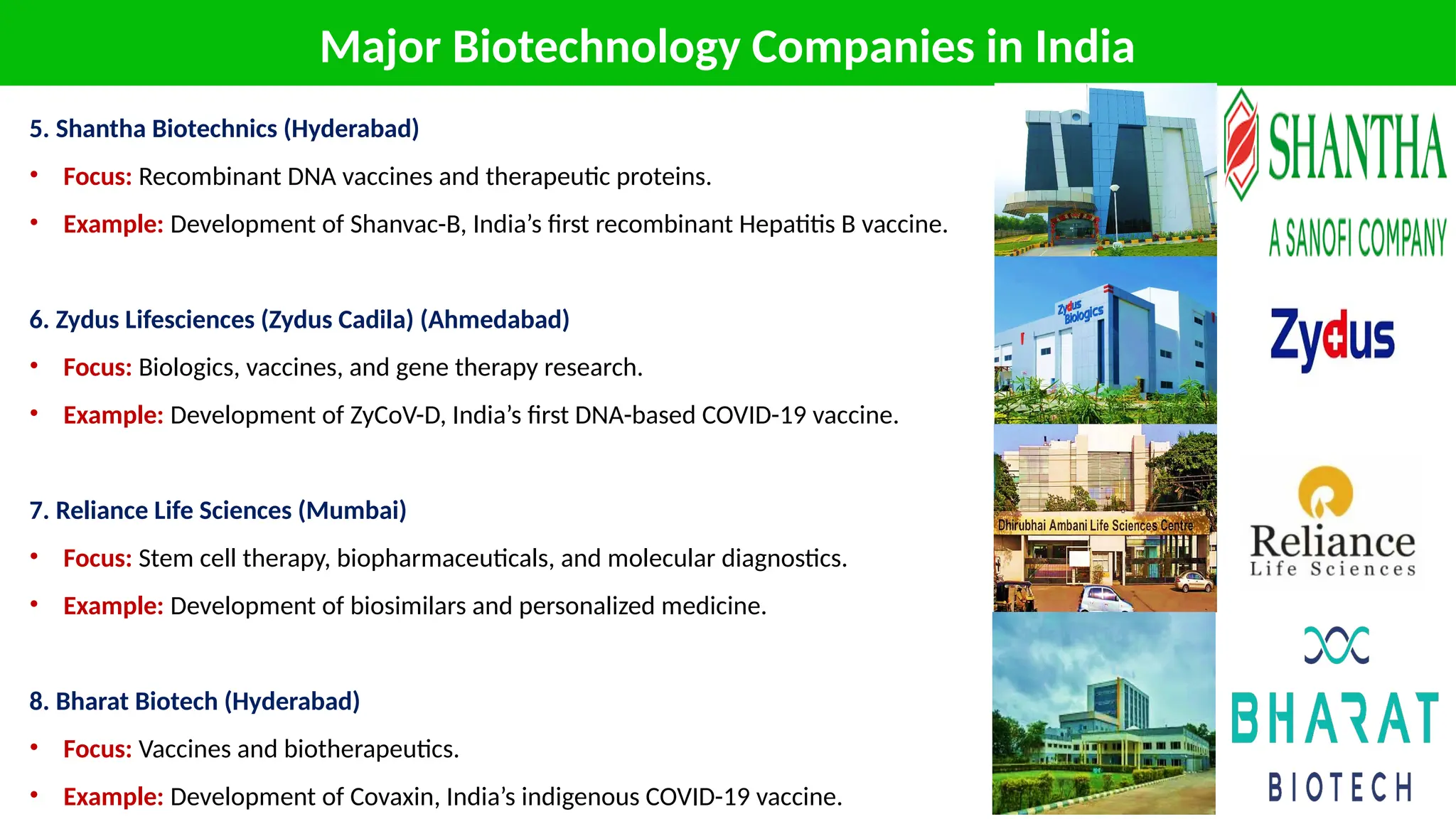Bioentrepreneurship is the process of creating and managing businesses in the biotechnology sector, focusing on translating scientific research into commercial products and services.
Key Areas in Bioentrepreneurship:
Healthcare & Pharmaceuticals – Developing novel drugs, vaccines, and diagnostics (e.g., Moderna (U.S) for mRNA vaccines).
Agricultural Biotechnology – GM crops, biofertilizers, and biopesticides (e.g., Monsanto (U.S) for Bt cotton).
Industrial Biotechnology – Enzyme production, biofuels, and biodegradable plastics (e.g., Novozymes (Denmark) for industrial enzymes).
Environmental Biotechnology – Waste treatment, bioremediation, and sustainable solutions (e.g., LanzaTech (U.S) for carbon recycling).
